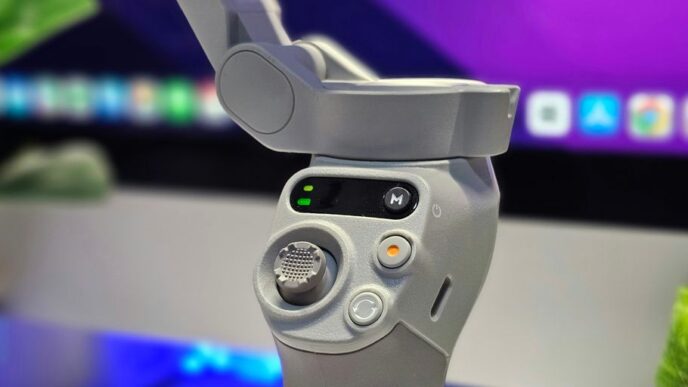In the world of football, staying ahead of the curve is crucial, and using a GPS tracker can make all the difference. These devices offer invaluable insights into both performance and training, helping players and coaches alike.
Firstly, GPS trackers analyze movement patterns, speed, and distances. This data allows coaches to tailor game strategies to each player’s strengths and weaknesses, optimizing team performance.
Moreover, by monitoring distance, sprint frequency, and fatigue, GPS devices provide guidance on ideal training intensities. This not only enhances performance but also minimizes injury risks, keeping players in top form.
Real-time data from GPS trackers enhances tactical awareness. Players gain a better spatial understanding and can make smarter decisions on the field, improving their positioning and game sense.
The insights from GPS technology promote informed adjustments, boosting team cohesion and performance. Embracing this technology is setting a new standard for elite gameplay.
Join the ranks of top-performing teams and athletes. Experience the benefits of GPS technology and elevate your game to the next level.
Key Takeaways
In today’s fast-paced world of football, staying ahead of the game is crucial. GPS trackers have become indispensable tools for footballers, offering a multitude of benefits that can elevate both individual and team performance.
Real-Time Insights & Strategic Adjustments
Imagine having the ability to understand player movement in real-time. GPS trackers provide exactly that, offering invaluable insights that allow coaches and players to make strategic adjustments on the fly. This enhances tactical awareness on the field, giving teams a competitive edge.
Optimized Training & Peak Performance
Training is not just about hard work; it’s about smart work. GPS trackers analyze essential metrics such as distance covered and heart rate. This data helps tailor training intensity, ensuring that players reach and maintain their peak performance without the risk of overtraining.
Injury Prevention & Recovery
Injuries can sideline even the best players. With GPS data, teams can monitor player load and make informed decisions to minimize injury risks. Furthermore, this information supports safe and effective rehabilitation, helping athletes get back on the field stronger and faster.
Improved Spatial Awareness & Team Dynamics
Understanding one’s position on the field is key to making smarter decisions. GPS data enhances spatial awareness, leading to better player positioning. This contributes to cohesive team dynamics and smarter in-game decisions, ultimately improving overall team performance.
Personalized Training & Team Trust
Communication and trust are the foundations of a successful team. GPS trackers offer personalized training insights, fostering effective communication between coaches and players. This builds trust, which translates into better team strategies and enhanced on-field performance.
In conclusion, GPS trackers are not just tools; they are game-changers. By providing real-time insights, optimizing training, aiding in injury prevention, improving spatial awareness, and promoting team trust, they are essential for any footballer looking to excel in today’s competitive landscape.
Enhance Performance Analysis
In the fast-paced world of football, GPS trackers are revolutionizing player performance analysis. These cutting-edge devices provide coaches and analysts with a treasure trove of data, enabling them to fine-tune game strategies with remarkable accuracy.
By monitoring movement patterns, speed, and distances covered, GPS data offers deep insights into a player’s strengths and areas for improvement. This information is crucial for crafting strategies that leverage each player’s unique skills, ensuring we maximize their potential on the field.
When it comes to player development, GPS trackers are truly transformative. They offer a clear view of a player’s progress over time, helping identify trends and performance patterns. This detailed analysis allows coaches to design customized training programs that address specific needs, ensuring athletes reach their full potential.
Understanding how players move and perform during matches informs decisions about training intensity and focus areas. As a result, players receive personalized feedback, empowering them to refine their approach and elevate their skills.
With GPS trackers, we’re not just participating in the game; we’re taking it to new heights. This technology creates an environment of continuous improvement, ensuring players and teams are always striving for excellence.
Monitor Player Load
In the realm of sports performance, GPS trackers have emerged as game-changers. They’re instrumental in monitoring player load, a key factor in optimizing training intensity. By analyzing metrics like distance covered and sprint frequency, coaches can tailor training sessions to each player’s unique capacity. This personalized approach ensures athletes are neither undertrained nor pushed beyond their limits.
The benefits are substantial. First and foremost, this data-driven strategy helps maintain peak performance levels. Athletes can perform at their best when training aligns with their individual needs.
Secondly, it significantly reduces the risk of overuse injuries. By preventing athletes from being overworked, we protect their health and, consequently, their careers.
Optimize Training Intensity
To achieve success on the football field, balancing performance and recovery is essential. Optimizing training intensity is key, and this can be done by carefully monitoring each player’s workload.
Utilizing GPS trackers, we can gather crucial data on heart rate and fatigue levels during training sessions. This information allows us to precisely adjust workouts, ensuring players are neither undertrained nor overworked.
By analyzing these metrics, we gain insights into a player’s exertion levels. A GPS tracker provides real-time data, enabling immediate adjustments to training intensity. This proactive approach helps maximize performance while minimizing the risk of burnout.
Here’s a quick guide on how GPS tracker data can inform training decisions:
- High Heart Rate: Indicates an intense workout. Suggest scheduling rest or recovery.
- Low Heart Rate: Suggests low intensity. Consider increasing the training load.
- High Fatigue: Signals overexertion. Recommend decreasing the workout load.
- Consistent Metrics: Reflects balanced training. Maintain the current load.
- Variable Metrics: Shows inconsistent performance. Time to review the training plan.
Prevent Overuse Injuries
Preventing overuse injuries in athletes is a top priority for us, and we’ve taken significant steps to ensure their well-being. One of our key strategies is closely monitoring player load through advanced GPS trackers. These devices provide us with real-time data on each player’s movements, the distance they’ve covered, and their overall exertion levels.
With this invaluable information, we can manage workloads effectively, ensuring athletes don’t exceed their physical limits. This proactive approach significantly reduces the risk of developing overuse injuries.
Our workload management strategy is centered around the personalized analysis of GPS data. We tailor training sessions to match each player’s capacity, striking a perfect balance between high-intensity drills and essential rest and recovery periods.
This approach not only maintains peak performance but also safeguards players’ health. By preventing injuries caused by repetitive strain, which are common in football, we keep our athletes in top form.
In the unfortunate event of an injury, GPS data becomes an essential tool in our rehabilitation strategies. It allows us to track progress and ensures that players aren’t pushed too hard during recovery.
This careful monitoring helps us gradually reintroduce athletes to full training loads, minimizing the risk of re-injury. Ultimately, our use of GPS technology empowers us to make informed decisions that prioritize player well-being, ensuring they remain fit and ready to give their best on the field.













